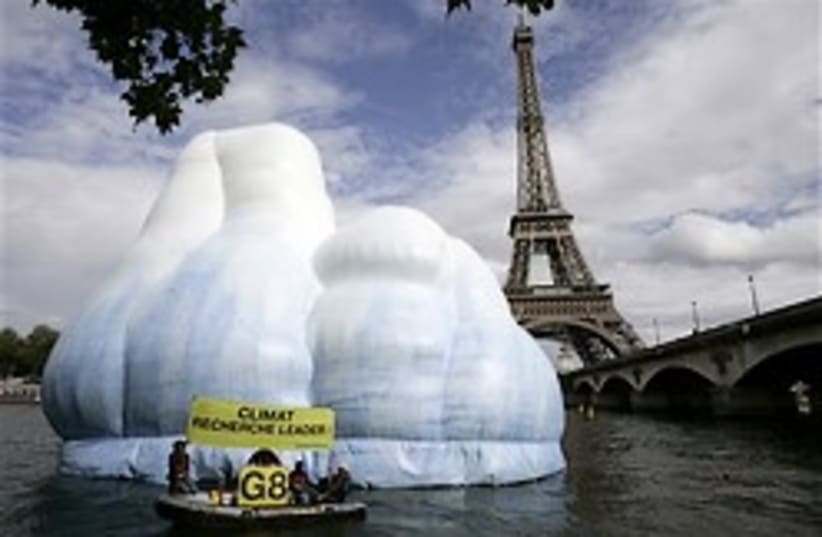France's parliament passed a sweeping law Thursday overhauling environmental standards and setting tough emissions targets, sending a signal to other major polluting nations ahead of global climate talks.
Legislators in both houses of French parliament approved the measure by a comfortable margin, with the majority conservatives and opposition Socialists supporting it. Green Party lawmakers and the Communists opposed it, saying the law doesn't go far enough.
According to the new legislation, France should reduce its carbon emissions fourfold by 2050 and increase renewable energy sources to 23 percent of total energy production, about double current levels.
It will affect everything from toll booths to drafty windows. It sets targets for energy efficiency in new and renovated homes, for greener agriculture and waste management. It favors new high-speed trains and river traffic over road construction. It puts in place a system to monitor worker health and pollution.
The law stemmed from months of negotiations among environmental activists, farmers, industry officials and bureaucrats in 2007 to work out what President Nicolas Sarkozy called an environmental "New Deal" for France.
The talks were part of Sarkozy's bid to catch France up to its greener neighbors and set an example to other nations.
The law was passed amid worldwide haggling over a pact to replace the Kyoto Protocol on reducing global warming. Before major U.N. talks in Copenhagen in December, the European Union is pushing for ambitious emissions targets. Any pact will hinge on the positions of major polluters the United States, China and India, which did not sign on to Kyoto.
France's Green Party said the law was a gift to "big industrial lobbies," noting loopholes added for the nuclear energy industry. France is more reliant than any other country on nuclear plants, which emit only limited greenhouse gases but which environmental activists say are dangerous and wasteful.
But he law is only a first step in France's environmental push, giving it broad outlines, and legislators will take up more detailed measures in the coming months.
The law does not include a "carbon tax" that government advisers proposed this week that would hike the price of gasoline and natural gas to encourage consumers to use cleaner energy forms.
| More about: | Parliament of France, Nicolas Sarkozy, United States, Copenhagen |
